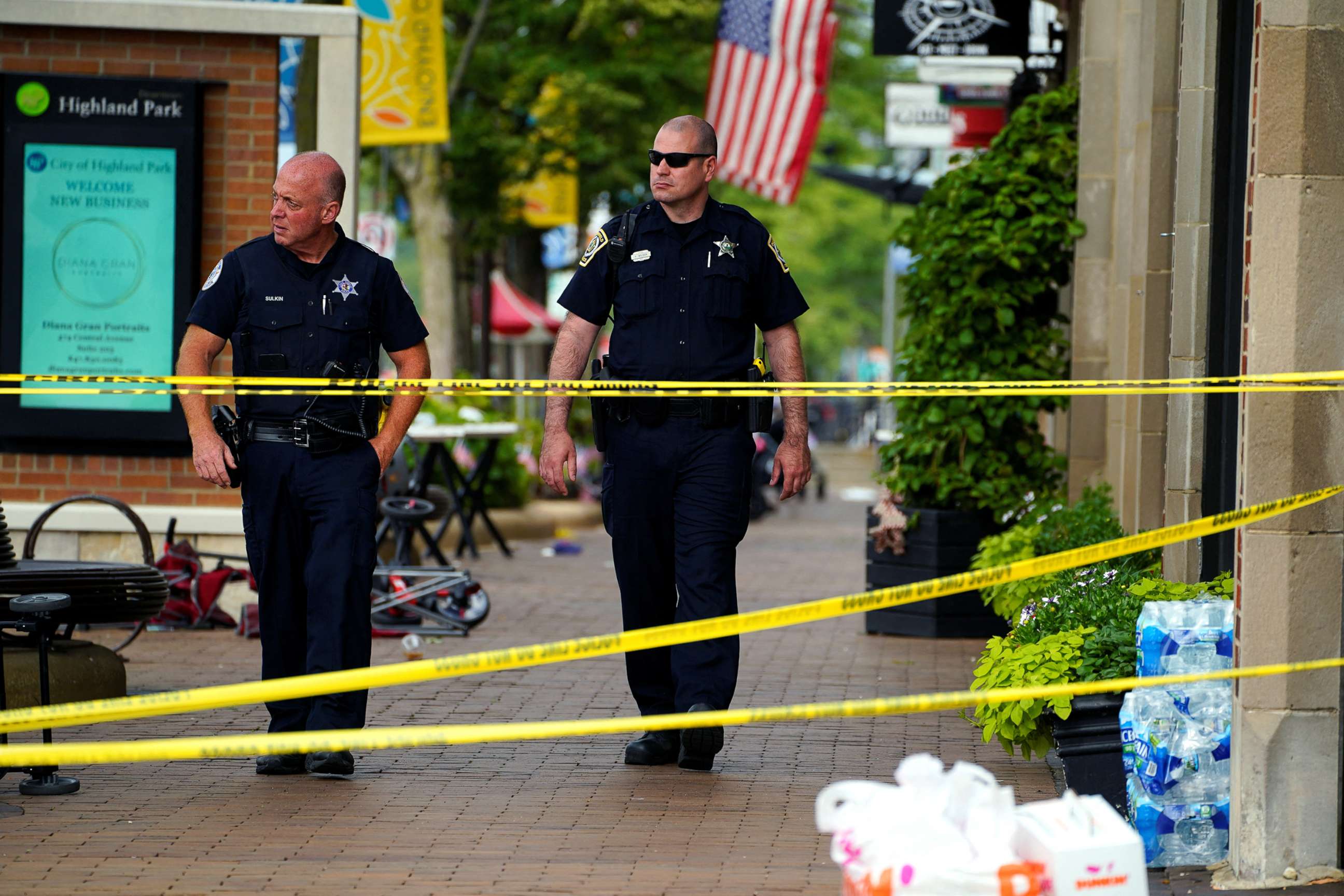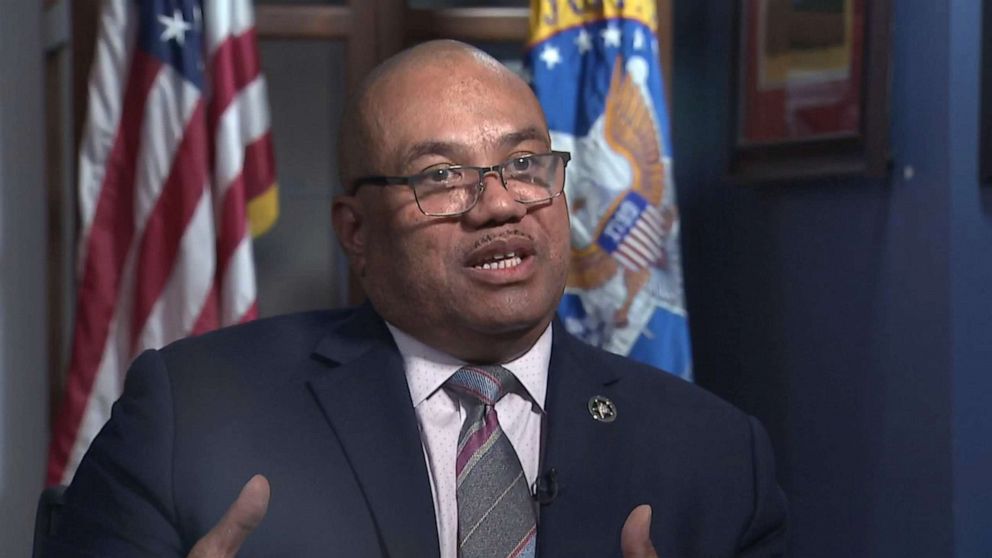Amid gun violence, US Marshals going after 'trigger pullers,' director says
Ronald Davis' first network interview is airing on ABC News Live.
In his first network interview, the director of the United States Marshals Service told ABC News the U.S. Marshals Service is focusing on "trigger pullers" -- repeat offenders who shoot and kill.
Director Ronald Davis told ABC News Chief Justice Correspondent Pierre Thomas that he is using his nearly 30 years in law enforcement to help push the effort.
The U.S. Marshals' most recent operation, which spanned the entire month of June, dubbed "Operation North Star," made more than 1,500 arrests in cities such as Washington, D.C., Memphis, New York and Philadelphia among others, and took hundreds of guns as well as narcotics off the street.
"I believe that if you are focusing on those who create the most violence that are responsible for the most violence, two things end up happening. One, you do remove trigger pullers off the street, those who are shooters, and it impacts crime and violence. You also bring justice to the families that have been terrorized by them," he said in the interview, set to air Thursday evening on ABC News Live "Prime."
Last year, the Marshals Service arrested nearly 6,000 murder suspects, Davis said.

Speaking in the wake of the July 4 mass shooting in Highland Park, Illinois, he said violent crime is an "us problem," meaning that it touches everyone, regardless of race, creed or background.
“It's such a ‘we’ problem that you don't have to be the victim of a violent crime to be impacted by violent crime," Davis said. "If it is causing you not to go shopping, you're a victim of violent crime. If it's caused, you know, not to go to a parade, you've been influenced by violent crime.”
It spans political ideology, he continued.
"It's not left or right," he said. "There's no leaning to this. We're just trying to save lives. And I think that's the key for the Marshals Service, we look at it as when we're arresting a fugitives, that we're bringing justice. But ultimately, we're hoping that we're saving lives."
When there is not a crisis, Davis said that is when community engagement is best.
"It's when there's not a surge in violence that you have to engage the community so that when there is a crisis that you come together, you already have a relationship to respond," he explained.

Davis said that it is now more important than ever for the police to have a relationship with the community, and that for him, policing and community relations is personal.
"It goes with trust and building trust one interaction at a time, one city at a time," Davis said. "But it is really making sure that our strategies to reduce crime and violence don't call the kind of collateral damage that we talked about that we are enforcing and protecting the Constitution of the United States, but being very effective and bringing justice to communities.
"As an African-American male, it's not just communicating to my community, but quite frankly, communicating to my deputies. And with inside the agency, the experience of growing up as a black man in America is unique. And I would hope that that experience that I bring to the job helps me, helps guide me in the decisions that need to make in understanding and having empathy, why people may be hesitant, why there may be apprehension, why there could be a lack of trust," he said.
Davis said he hopes his experience in law enforcement and as an African American man can help build trust amongst law enforcement, but that even in his own personal life, and as a high-ranking law enforcement official, he still has to sit his son down and have a conversation about how to interact with the police as an African American male.
"The fact that I have to have that conversation, the fact that it's a mandatory course for families of color means we have a lot of work to do," he said. "And so there's this I've struggled with over the years, but I've come to a reconciliation that both of these truths can coexist. I can accept that the vast majority of men and women in law enforcement are outstanding, but also can accept that we have historical context and practices that still have disparate impacts. And so we need to address both use the outstanding men and women to do so."
Davis said he is seeing an increase in law enforcement assaults, but does not know the root cause of the increase in violence.
"We're definitely seeing an increase in assaults against law enforcement, against our deputies, within the Marshal Service, our task force officers that the agencies we're working with," he said.



